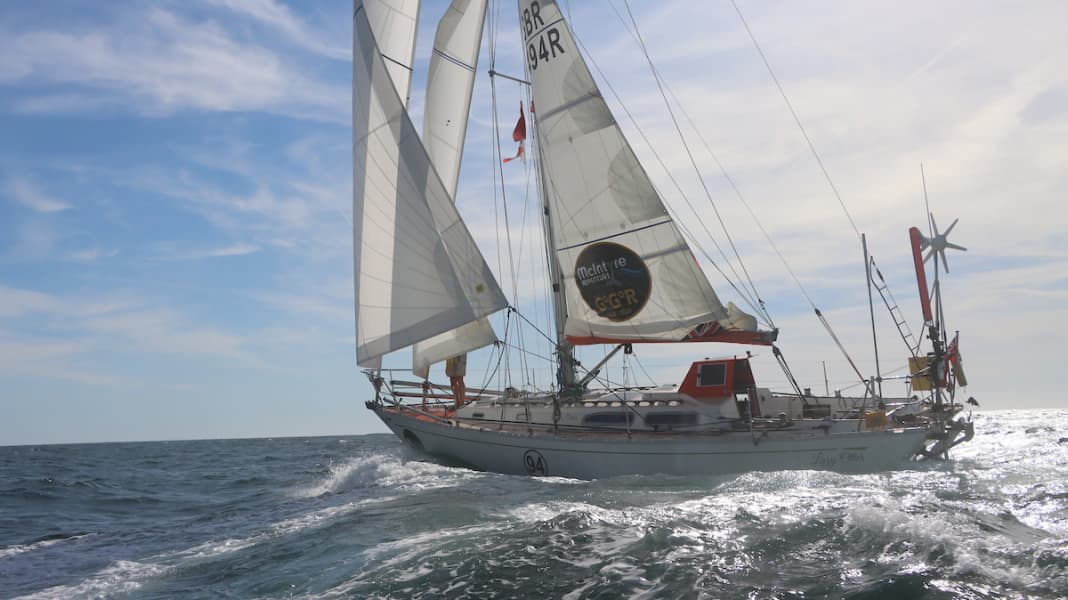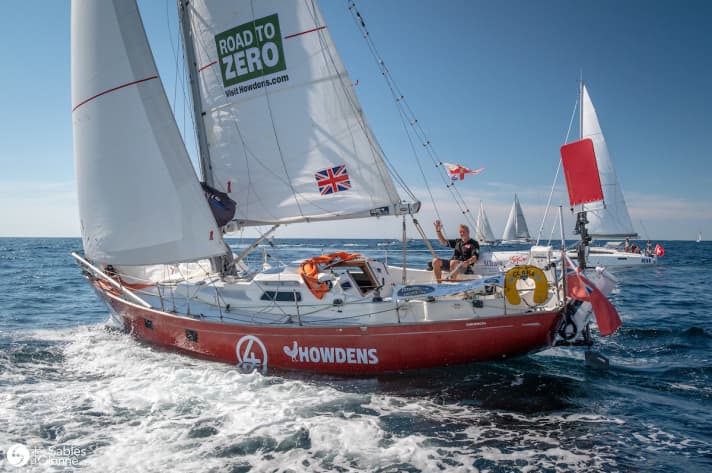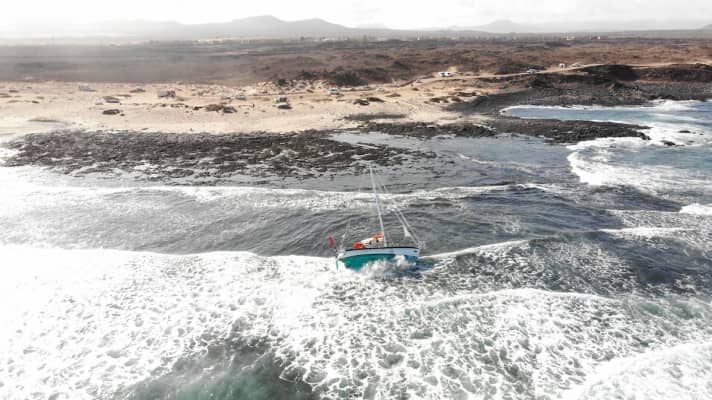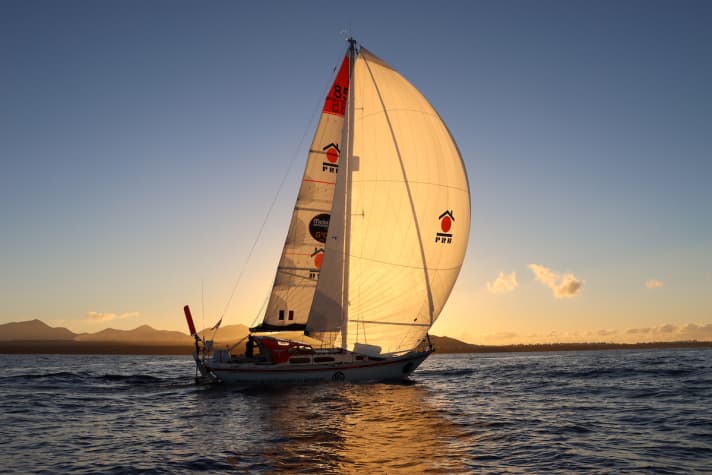
A lot has happened since the start of the race on the Bay of Biscay, which immediately demanded a lot from the sailors and their boats: Damien Guillou from France is fighting his way back to the field after a repair, Edward Walentynowicz from Canada and Mark Sinclair from Australia have given up, Guy deBoer from the USA is stranded on Fuerteventura. This means that only 13 of the 16 skippers who started are still looking for the best course south.
Comeback after a restart
Damien Guillou is working hard on his comeback. After starting with a defective bracket for his wind steering system a Hydrovane, had sailed back to Les Sables-d'Olonne shortly after the start, he was able to reinforce it there with the help of Vincent Riou and Jacques Fort.
After six days, he set off again, crossed the Bay of Biscay in changeable conditions, caught up with the field and delivered an impressive comeback. He consistently sailed the fastest times and first caught up with his compatriot Arnaud Gaist and finally the Australian Mark Sinclair.
The favourite from France has now overtaken half of the boats and continues to sail towards the top in sixth position. Simon Curwen from Great Britain, who appears extremely relaxed, has been sailing consistently there for weeks. He summarised the Golden Globe Race in a report from on board: "It's eat, sleep, sail- and then the whole thing all over again!"

Kirsten Neuschäfer catches up
Kirsten Neuschäfer delivered another strong comeback, leaving the Bay of Biscay in tenth place and being the sixth boat to reach the media stop on Lanzarote. She has now fought her way up to fifth place in the leading group, which is currently sailing off the Brazilian coast. At over 170 miles per day, her Cape George 36 "Minnehaha" was also recently one of the fastest boats in the Golden Globe field.
In the messages that the skippers send from on board to the regatta organisers, Neuschäfer seems satisfied with the race and the lonely days at sea. "I don't know where I am in the fleet and actually prefer not to know where the others are and just enjoy sailing," says the 39-year-old professional skipper.
Compulsory manoeuvres for all
You can now see how the sailors experience their days at sea in videos by Damien Guillou, Kirsten Neuschäfer and the leading Simon Curwen. At the first film stop off Lanzarote, the skippers handed over the video material filmed on board to the race organisers, who are gradually publishing it. For 20 minutes, the sailors let themselves drift during these stopovers, report on the past few days and have the opportunity to find out where they are in the field.

Stranding on Fuerteventura - what happens next?
Meanwhile, the US American Guy deBoer experienced dramatic hours. He ran aground on Fuerteventura with his Tashiba 36 "Spirit" after becoming overtired. The boat has now been lifted off the rocks using a mobile crane - a complex undertaking that first required access to the scene of the accident for the crane and low-loader.

However, the actual accident was followed by another shock: while deBoer was organising the salvage and the yacht was lying on the beach, most of his valuable long-distance sailing equipment on board was dismantled - stolen. Among other things, his hydrovane, the watt & sea hydro generator, winches and other equipment worth over 50,000 US dollars are said to have been stolen.

The desperate search for the wind
The race also remained nerve-wracking for the fleet as it approached the Doldrums and thus the windless zone around the equator. This is where the north-westerly trade winds of the northern hemisphere meet the south-easterly winds of the southern hemisphere. The heat forces the hot, humid air into the atmosphere, where it turns into pouring rain after cooling down.
This zone of weak, unpredictable winds, hot temperatures, gusts and showers has always been almost as feared by circumnavigators as Cape Horn. Damien Guillou sums it up in a report from on board. "Nothing is worse than the doldrums and waiting for wind." These are nerve-wracking days for the sailors on their way south.

"Just tired" - Australian cancels his second Golden Globe Race
Mark Sinclair didn't even let it get that far. Instead of getting back on course after the media stop on Lanzarote, the Australian sailed into the marina there and cancelled the Golden Globe Race. "I really wanted to start," he said. "But it was an incredible amount of work before the race and I'm just tired," said the 63-year-old.
He had also planned to arrive in Cape Town anyway in order to attend his son's wedding. He then wanted to continue the race in the so-called Chichester class. In this classification, all those who make a stop en route can continue sailing.
Sinclair also finished the Golden Globe, which started in 2018, in the same way - although only after an impressive four years and a long stay ashore in his native Australia. He left Adelaide again in December 2021, sailed non-stop to Les Sables-d'Olonne in 174 days and has been working non-stop ever since to be able to start again in September 2022. Apparently too much for the likeable skipper of the "Coconut", who will now only follow the fleet in the tracker.
Click here for the Race tracker of the Golden Globe Race 2022/23.

